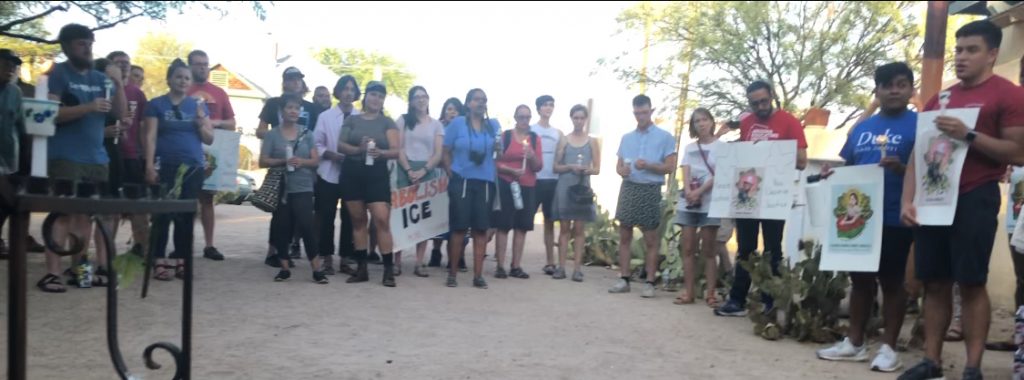
Immigrant Resilience
Resilience — the capacity to recover quickly from difficulties. The immigrant community is marked by their resilience, but how much longer do we have to be resilient? This summer I’m working with ScholarshipsA-Z, a non-profit dedicated to helping make higher education accessible to undocumented immigrants and providing support for this community. I got there in the middle of their planning for an undocu-graduation celebrating the success of these resilient students. As I read through their speeches, I saw how their plans took a quick turn when the Arizona Supreme Court ended in-state tuition. They could no longer celebrate their college acceptances because those schools went from being possible to just dreams. But, they were resilient. They recovered from that challenge and went on to celebrate their graduation this past Saturday.
They should no longer have to be resilient though. They should no longer have to face difficulties because of their immigration status. They should no longer be expected to recover quickly from them. They deserve to live with certainty in their lives and should be given time and space to process those challenges. ScholarshipsA-Z has a healing space called Girasol Project led by and for people with experiences through the unjust immigration system. More support spaces like this are needed, but the SA-Z staff noted the low attendance in them. I can only speak from my own experience as an undocumented immigrant, but I think we have become accustomed to quickly recovering from issues facing our community on our own. We have become used to one challenge after the other, but we know that if we let it get to us we won’t be able to fight against it. We don’t give ourselves the time and space to heal. We should celebrate our successes in spite of challenges, but we should also take time to heal and be okay with taking that time to recover.
Justice for Roxana
“What do we want? Justice! When do we want it? Now!” we demanded as we stood with candles for Roxana’s vigil. Roxana Hernandez was a transgender woman who died in ICE’s custody. During the vigil, we heard transgender women with first-hand experiences in detention centers talk about the negligence they saw from immigration agents. Unfortunately, the medical negligence in Roxana’s situation led to her death. One remark by a community member stuck with me because of it’s brutal honesty. She noted the irony in these cases because these people are migrating to the United States for protection from violence in their home countries and are dying in the country that is supposed to be their safe haven. Roxana withstood the dangerous journey to the U.S., but died in an American detention center. How is it possible that our detention centers are killing people who survive what is supposed to kill them? What does that tell us about our detention centers?
These detention centers aren’t there to be a safe haven for migrants. They are there to criminalize them and make a profit off them. The ICE website states that there are standards to “ensures that detainees in ICE custody reside in safe, secure and humane environments and under appropriate conditions of confinement”. These detention centers are so cold, they’ve come to be known as “hieleras” (coolers). Medications are taken away at detention centers and it can take time to receive medical treatment — time that people with a deteriorating health from their journey don’t have. The centers are unsafe, insecure, inhumane and show how little the land of opportunity values the lives of immigrants and asylum-seekers.
